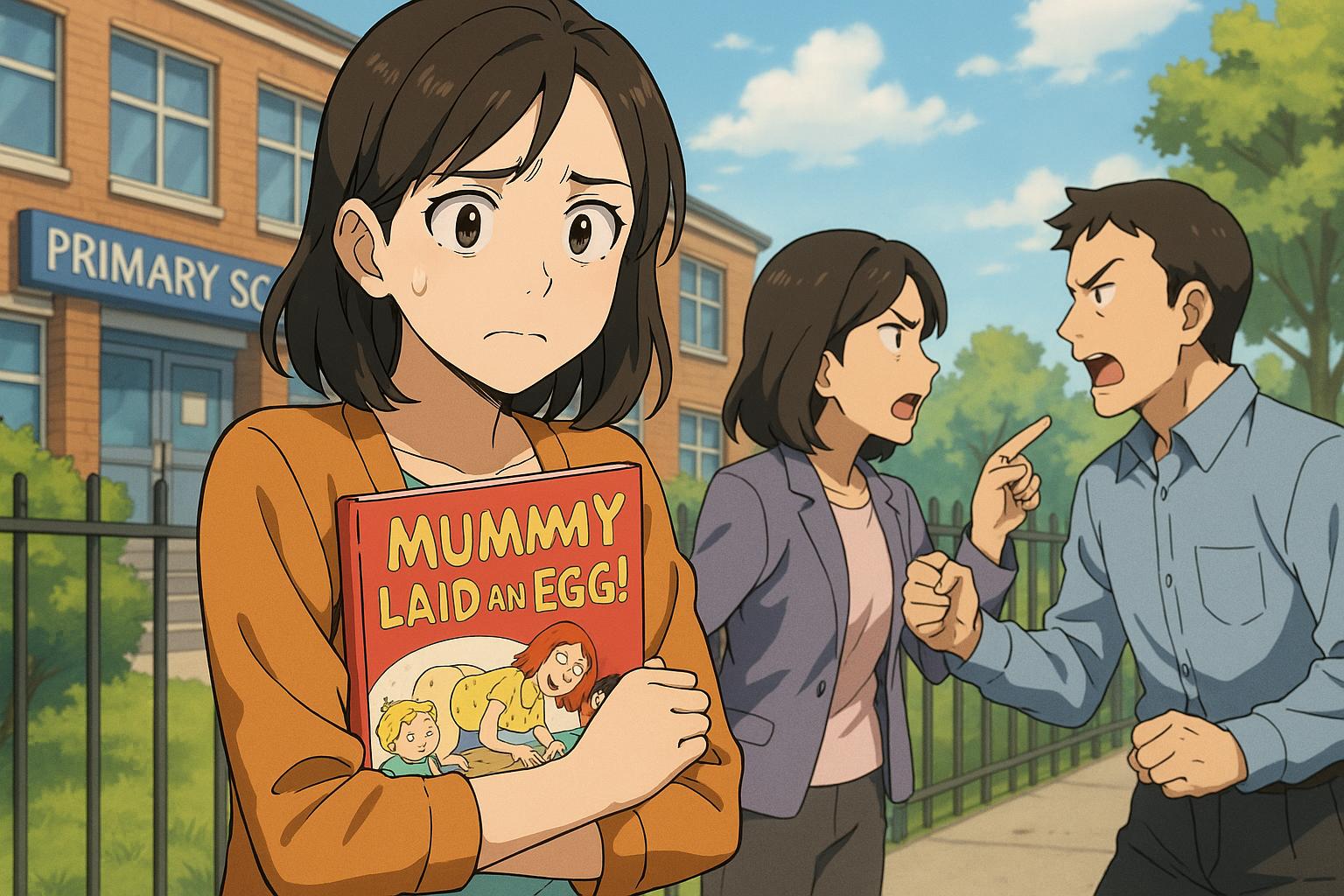Parents at Little Sutton Primary School in Sutton Coldfield were left outraged after a book entitled Mummy Laid an Egg by Babette Cole appeared on the reading list for Year 2 pupils, causing considerable controversy and leading to its withdrawal by the headmaster. The book, aimed at explaining reproduction through cartoon-like illustrations, has been described by concerned parents as containing "graphic" images of sexual positions that are unsuitable for six-year-olds. One mother, who brought the issue to light, prompted a domino effect of complaints among other parents upon revealing the book's content.
The illustrations in question, which depict playful yet explicit scenarios involving skateboards and balloons, led to objections that underscored a growing concern regarding the appropriateness of explicit sexual education for young children. Many parents expressed their dismay over not being consulted about the sexualised content included in their children's education. Current guidelines on relationship, sex, and health education allow parents the option to withdraw their children from such lessons, but parents felt this choice was not effectively communicated to them.
The situation resonates with earlier criticisms voiced by advocacy groups, including The Christian Institute, which had previously denounced Mummy Laid an Egg and other explicit educational materials as inappropriate for primary school children. Back in 2011, this evangelical group had argued that such content could be damaging and inappropriate for children as young as five. Their concerns echo the sentiments shared by many parents today, who believe that introducing sexual education at such an early age is misguided.
Despite the headmaster's decision to remove the book from the curriculum, the withdrawal came only after a number of parents voiced their protests. One father in particular shared his anger, describing the illustrations as inappropriate, stating, "It's against the law to show these images." He went on to insist that discussions about genitalia and reproduction should not be introduced until at least Year 5, when children are better equipped to understand these concepts.
This incident raises broader questions about how parents and educators navigate the sensitive area of sex education. While many educational professionals argue for the importance of teaching children about bodies and relationships at an early age, the methods and materials used remain deeply contentious. For some, the candid approach of books like Mummy Laid an Egg provides an amusing and educational way to discuss reproduction; for others, it appears to violate the boundaries of what is suitable for young learners.
The debate surrounding the book is not novel. Discussions regarding age-appropriate sex education often feature varying opinions on how explicit imagery should be handled in educational contexts. Various experts have advocated for age-appropriate resources tailored to introduce complex subjects in a way that is both informative and sensitive to children's developmental stages. However, parental concerns often call these materials into question, as evidenced by the reactions from the Sutton Coldfield community.
In an age where awareness of children’s emotional and psychological welfare is paramount, it remains to be seen how schools will balance educational needs with parental expectations. Ultimately, the tussle over Mummy Laid an Egg illustrates an ongoing societal debate on sexual education's place in primary curricula, highlighting the need for clear communication, enhanced parental involvement, and thoughtful selection of teaching materials.
Reference Map
- Parent concerns regarding Mummy Laid an Egg and its withdrawal from the curriculum.
- Description of the book's content from various parental perspectives.
- Historical context on criticisms of explicit educational materials.
- Public sentiment and discussions regarding the appropriateness of the book.
- Overall implications for the future of sex education in primary schools.
Source: Noah Wire Services
